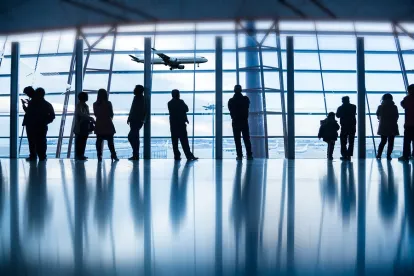All individuals entering the U.S. at international ports of entry are inspected by US Customs & Border Protection (CBP). This occurs at either the arrival airport in the U.S., Pre-Flight Inspection if flying from most Canadian airports, or border crossings into the U.S. from either Canada or Mexico. This is an inspection to determine the individual’s eligibility to legally enter the U.S., as well as to confirm any necessary customs declarations or possession of contraband.
Because of the unique nature of the border or port of entry inspection and the concern over national security, U.S. law gives CBP officers wide latitude in how to conduct the inspection, including verbal questioning, inspection of luggage, and, lately, even inspection and retention of electronic devices. Usually, the inspection process is quick and painless. However, since the administration’s recent attempts to ban certain individuals from entering the country in the name of national security, CBP officers have reportedly been reaching beyond the normal procedures to search people’s phones and compel individuals to unlock their smartphone as a part of the search. Not only are border agents doing cursory searches, as in thumbing through an individual’s phone, but in some instances, they will dig deeper and download the contents of the device onto their own computer system and run forensic search algorithms to reveal all the data, including deleted files that have not yet been overwritten and metadata that the owner did not know was there. Case law for this kind of search is undeveloped, so an individual’s rights against this invasion of privacy are not clear until challenged in court.
Below are some FAQs to help you through this process if you face additional scrutiny. These questions and responses have been formulated with the best information available, but you should know that in any given situation, CBP officers may expand the inspection process subjecting you or your possessions to additional scrutiny.
-
What can I do if selected for a longer interview? Do I have a right to an attorney? U.S. citizens have a right to speak to a lawyer if an interview exceeds routine entry eligibility questions. However, refusing to cooperate with CBP will likely result in delay or additional inspection. If you are a lawful permanent resident, you may have the right to a lawyer, but only if the questions are intrusive beyond what is normally needed for entry and even then, CBP may refuse to allow you to speak to a lawyer before answering questions. If you are a foreign national with a visa or visa exemption seeking temporary entry, you generally do not have the right to a lawyer before answering questions.
-
What if I am told that I am “under arrest?” For anyone attempting to enter the United States, if a CBP officer tells you that you are under arrest, or if it becomes clear that he or she suspects you have committed a crime, you have the right to talk to a lawyer before answering any
-
Can CBP search my person? You may be searched at the port of entry for a variety of reasons, including if you do not have proper or complete documents to enter the U.S., you appear in a system as having been a previous violator, you have a common name that matches a person of interest to the government, or you have been randomly selected.
-
Can CBP inspect the contents of my luggage? CBP and other law enforcement officials at airports have broad authority to search all luggage and all contents. All persons, baggage, and merchandise arriving in the U.S. are subject to inspection, search, and possible detention.
-
Can CBP search my electronic devices? CPB officers may ask you to provide any necessary password or biometric information to search an electronic device. If you consent to this, the search and any evidence obtained is considered legal and will be difficult to challenge later. You may have a right to decline, but this is a contested legal issue in U.S. courts. Most courts have held that CBP has broad authority to search or copy files with no level of suspicion.
-
What if I refuse to provide access? If you are a U.S. citizen, you will still be allowed to enter the U.S., even if you refuse to provide the requested information, but refusal will likely delay your entry and result in more questioning and likely temporary seizure of any device for additional forensic inspection for days and maybe months. For lawful permanent residents (green card holders) and other foreign nationals entering with a visa or visa exemption, failure to cooperate can lead to denial of entry into the U.S.
-
Can CBP seize my electronic device? If you refuse to provide access or access cannot be obtained while at the port of entry, the device may be detained by CBP for additional forensic inspection. CBP has an internal protocol for handling seized devices, but at a minimum, you should get the name and badge number of the officer as well as a receipt for any property seized. CBP will contact you when the inspection of the device is complete to arrange for pick-up.
If you do enter the U.S. more than 4 times per year, you should consider applying for one of the expedited entry (“Trusted Traveler”) programs such as Global Entry or NEXUS, if you are eligible to do so. There is an application procedure for these benefits and wait times for approval can be lengthy, but having Global Entry or NEXUS can greatly improve the chances of a quick entry.




 />i
/>i
